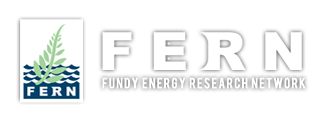Tidal Technology Standards/Guidelines Development
Several international initiatives are underway aiming to develop protocols, guidelines and standards for the marine energy industry.
International Electrotechnical Committee (IEC) Technical Committee 114: Marine energy - Wave, tidal and other water current converters
The IEC is the leading organization involved in the international standardization of electrotechnical equipment.
The mandate of TC 114 is to prepare international standards for marine energy conversion systems. The primary focus is on systems related to the conversion of wave, tidal and other water current energy into electrical energy, although other novel conversion methods are included.
The standards produced by TC 114 are intended to address:
- system definition
- performance measurement of wave, tidal and water current energy converters
- resource assessment requirements, design and survivability
- safety requirements
- power quality
- manufacturing and factory testing
- evaluation and mitigation of environmental impacts
Thirteen countries, including Canada, and over 80 experts participate in this TC. Due to the novelty of the industry and diversity of technologies, the current work program involves the development of 'technical specifications' to provide provisional standards that allow flexibility for technological innovation, which can be evaluated and converted to international standards once the technologies have become more established. The current work program involves the development of five technical specifications: To date, environmental considerations have not been addressed by this TC.
Click here to visit the TC 114 website.
Equitable testing and Evaluation of Marine Energy Extraction Devices in terms of Performance, Cost and Environmental Impact (EquiMar)
EquiMar is a collaborative research and development project involving a consortium of 23 European partner organizations coordinated by the University of Edinburgh (2008 to 2011).
The aim of EquiMar is "to deliver a suite of protocols for the equitable evaluation of marine energy converters (based on either tidal or wave energy)." These protocols are intended to harmonize testing and evaluation procedures across device designs and to improve understanding of environmental and economic impacts. The protocols cover site selection, device engineering design, the scaling up of designs, the deployment of arrays of devices, the environmental impact (biological & coastal processes) and economic issues. Results from the EquiMar project are intended to provide a basis for future marine energy standards (e.g. IEC TC 114).
So far they have produced a number of deliverables including background documents and draft protocols. Click here to visit the EquiMar website.
Ocean Energy Systems Implementing Agreement
The OES-IA aim is to facilitate and coordinate ocean energy research, development and demonstration through international cooperation and information exchange.
Collaborative Annex II - Development of Recommended Practices for Testing and Evaluating Ocean Energy System
The objective of Annex II is to recommend procedures for development, testing and evaluating ocean energy systems and to provide the necessary basis to present the performance of different Wave and Tidal Energy Systems in a comparable format. Eleven countries, including Canada, participate in this Annex.
The work program included the following tasks:
-
Generic and site related wave data
- Guidance for assessing tidal current energy resource
- Wave energy development protocol
- Tidal energy development protocol
- Preliminary wave energy device performance protocol
- Preliminary tidal energy device performance protocol
- Guidelines for the design basis of marine energy converters


